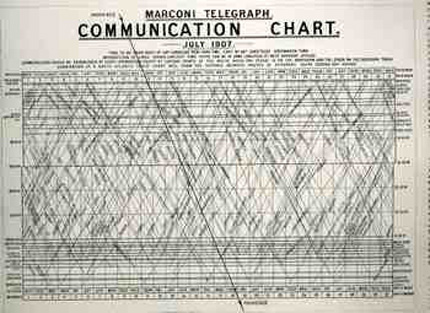Online relationships: Quality vs quantity


I'm currently reading (courtesy of San Francisco Public Library) 'Free, the future of a radical price' by Chris Anderson, who also wrote the influential book 'The Long Tail'. There's plenty of good discussion elsewhere about the validity of the various business models Anderson explores around his proposition that companies can ultimately make more money by giving things away than they can by charging for them.
(Google is of course a great example if this: the more they can engage you in their 'free' products online, the more they can advertise to you and build up their online profile on you, which is where they ultimately make their money).
There is a parallel reality I'm more intrigued by however around this 'Free' concept, and that is the perception that all software running in a browser window is historically essentially free to the end user. The web generation have been exposed to prodigious amounts of free content and are currently in the throes of adding friends and personal connections to their online identities and personas at an ever greater rate.
The impact this has had on organizing people to collaborate is not insignificant: many people have always known their browser window as a grazing device. They started out surfing around cyberspace, to use the quaint old language, and now they expect sophisticated functionality and intuitive, easy to use interfaces from web applications they may spend time measured in seconds on. Like Google, the profit incentive of these vendors is usually your exposure to advertising messages.
So what happens when 'Facebook generation' web browser users are asked to participate in collaboration networks inside companies in order to share structured and unstructured information in 'Facebook style' applications? Their learnt behavior can result in very superficial 'flip through the TV channels looking for something interesting' style usage.
Some of this learnt behavior is caused by the tsunamai of free eye candy applications and shiny objects that flow past their eyeballs every day in the consumer world, and some by unclear instruction of what it is management expect them to do.
This attention deficit attitude is spreading in some cases to online personal interactions, as Sam Lawrence notes in his insightful post 'numbers we track in our online/offline life':
Number of friends is the metric on big kitchen sink networks like Facebook, Myspace, etc. On Twitter it’s number of followers. And you can see the resulting behavior every day. As soon as someone joins Facebook, it’s a race to add as many friends to (your) cart as possible to get that number up.
Sam's been brainstorming with eBay founder and chairman Pierre Omidyar about the numbers we track in our online and offline life as they relate to his 'nicheworking' site Black Box Republic...
...while we focus on driving our social numbers up as high as possible, those numbers end up being meaningless. They don’t reflect reality. In real life people come in and out of our life. People we vouch for at one point, we can’t vouch for at another point. Our friends change. People we want to meet change. Because the kitchen-sink networks optimize their numbers around mass-use in order to sell advertising, they can’t solve this problem.
The parallels with business use of enterprise collaboration are striking: 'friending' everyone in your company as a bureaucratic task when you first start a new job (or a new Enterprise 2.0 is introduced) and then focusing on finding more contacts until you have the full set of connections online is of questionable value.
The quality vs quantity conundrum is also very real in the depth of knowledge shared. The goal of good collaboration networks over time are to build up ever more valuable repositories of information. The contributors may evolve and change over time, just as the personal connections and relationships that grow from sharing the information may mutate and change, but the body of knowledge and interconnected 'business fabric' grows cumulatively ever stronger.
New employees are much less likely to be trained on induction into a new company to nurture a sense of belonging and loyalty, as used to be typical.
Stewart Brand listed seven principles of the 'hacker ethic' way back in 1984: Anderson re examines number 3, 'all information wants to be free', with Brand in his book. (This phrase dates back to 1959 and MIT's Model Railroad Club but read the book for more: page 94).
Brand:
On the one hand information wants to be expensive, because it's so valuable. The right information in the right place just changes your life. On the other hand information wants to be free, because the cost of getting it out is getting lower and lower all the time. So you have these two fighting each other.
The right information - and the right contacts - when you need them will absolutely make the average knowledge worker so much more productive. The challenge is differentiating their use models to filter overwhelming volume and understand quality over quantity, something which may be spinning out of control online in their personal lives online.